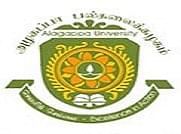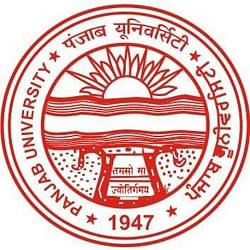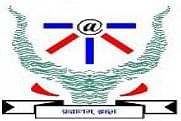Introduction about Bachelor of Software Engineering
(B.S.E.)
The Bachelor of
Software Engineering (B.S.E.) at the top affordable college in india is
an undergraduate academic degree program that focuses on the study of software
development, engineering principles, and methodologies. It aims to equip
students with the knowledge, skills, and expertise needed to design, develop,
implement, and maintain software systems and solutions to meet the needs of
businesses, organizations, and society at large.
Here's an
introduction to the Bachelor of Software Engineering program:
o Core Curriculum: B.S.E. programs typically offer a
comprehensive curriculum covering fundamental concepts and principles of
software engineering. Core courses may include topics such as:
Software
Development Life Cycle
Object-Oriented
Programming
Data Structures and
Algorithms
Software Design and
Architecture
Database Management
Systems
Software Testing
and Quality Assurance
Software Project
Management
Human-Computer
Interaction
Software
Maintenance and Evolution
o Engineering Approach: Unlike general computer science programs,
B.S.E. programs emphasize an engineering approach to software development. This
involves applying systematic and disciplined engineering principles to the
entire software development process, from requirements analysis and design to
implementation, testing, and maintenance.
o Specializations: Some B.S.E. programs allow students to
specialize in specific areas of software engineering based on their interests
and career goals. Common specializations may include:
Web Development
Mobile Application
Development
Game Development
Embedded Systems
Artificial
Intelligence and Machine Learning
Cybersecurity
Cloud Computing
o Hands-on Learning: B.S.E. programs often emphasize practical,
hands-on learning experiences to complement theoretical knowledge. Students may
participate in laboratory sessions, projects, internships, and real-world case
studies to gain practical skills and industry-relevant experience.
o Interdisciplinary Approach: Software engineering is inherently
interdisciplinary, drawing upon concepts from computer science, mathematics,
engineering, and management. B.S.E. programs may incorporate elements of these
disciplines to provide students with a holistic understanding of software
engineering principles and practices.
o Industry-Relevant Skills: B.S.E. programs focus on developing skills
that are in high demand in the software industry. These include programming
skills, software design and architecture, problem-solving abilities, teamwork,
communication, and project management skills.
o Professional Development: B.S.E. programs often include courses or
modules focused on professional development skills such as communication,
teamwork, leadership, ethics, and entrepreneurship. These skills are essential
for success in the software engineering profession and are integrated into the
curriculum.
o Career Opportunities: Graduates of B.S.E. programs are
well-prepared for a wide range of career opportunities in the software
industry, including roles such as:
Software Developer
Software Engineer
Systems Analyst
Software Architect
Quality Assurance
Engineer
Project Manager
User Interface (UI)
Designer
DevOps Engineer
Overall, the
Bachelor of Software Engineering program provides students with a solid
foundation in software engineering principles, practical skills, and industry
knowledge, preparing them for successful careers in the dynamic and rapidly
evolving field of software engineering.
What is eligibility for Bachelor of Software
Engineering (B.S.E.) ?
The eligibility
criteria for Bachelor of Software Engineering (B.S.E.) at the best university programs can vary depending on the institution offering the
program and the country's educational system. However, there are some common
requirements typically observed across institutions. Here's a general overview
of the eligibility criteria for B.S.E. programs:
Educational
Qualifications: Candidates
must have completed their secondary education or equivalent, usually with a
strong emphasis on mathematics, science, and computer-related subjects. The
specific requirements may vary, but most institutions require applicants to
have passed their high school or equivalent examination with a certain minimum
grade or percentage.
Minimum Marks: Many universities and colleges set minimum
marks or grades in relevant subjects (such as mathematics, science, and
computer science) for eligibility for admission to the B.S.E. program. These
minimum marks may vary depending on the institution and the competitiveness of
the program.
Entrance
Examinations: In some
countries, admission to B.S.E. programs is based on performance in standardized
entrance examinations. These exams assess the candidate's aptitude in subjects
such as mathematics, science, and computer science, as well as problem-solving
and analytical skills. Common entrance exams for B.S.E. programs include SAT
(Scholastic Assessment Test), ACT (American College Testing), and others
specific to each country or region.
Language
Proficiency: For
international students or in regions where the language of instruction is not
the native language, proficiency in the language of instruction (usually
English) may be required. This proficiency is often demonstrated through
standardized tests such as the TOEFL (Test of English as a Foreign Language) or
IELTS (International English Language Testing System).
Other Requirements: Some institutions may have additional
requirements, such as letters of recommendation, personal statements or essays,
interviews, or portfolios showcasing the candidate's interest and abilities in
software engineering-related subjects. Additionally, candidates may be required
to demonstrate proficiency or prior experience in computer programming or other
software engineering skills.
It's essential for
prospective students to carefully review the specific eligibility criteria and
admission requirements of the institutions and programs they are interested in
applying to. Additionally, admission processes, including deadlines, application
procedures, and required documents, may vary from one institution to another,
so it's crucial to stay informed and plan accordingly.
What is admission process for Bachelor of Software
Engineering (B.S.E.) ?
The admission
process at the top Bachelor of Software Engineering (B.S.E.) college typically involves several steps, which
may vary slightly depending on the institution and country. Here's a general
overview of the admission process for B.S.E. programs:
ü Research and Exploration: Prospective students should research B.S.E.
programs offered by various universities and colleges to identify the
institutions that best align with their academic interests, career goals, and
personal preferences. This may involve reviewing program curricula, faculty
profiles, campus facilities, and student resources.
ü Eligibility Check: Before applying, candidates should
carefully review the eligibility criteria for admission to B.S.E. programs at
their chosen institutions. This includes educational qualifications, minimum
marks or grades, entrance examination requirements, language proficiency, and
any other specific requirements set by the institution.
ü Application Submission: Once eligible, candidates must submit their
applications for admission to the B.S.E. program at their chosen institutions.
The application process usually involves completing an online or paper
application form, providing personal and academic information, and paying any
required application fees. Additionally, candidates may need to submit
supporting documents such as transcripts, standardized test scores, letters of
recommendation, personal statements or essays, and proof of language
proficiency (if applicable).
ü Admission Evaluation: After receiving applications, the
institution's admission committee evaluates each candidate's academic
qualifications, standardized test scores, and supporting documents. They
consider factors such as academic performance, extracurricular activities, leadership
experience, community service, and other relevant achievements.
ü Interviews (if applicable): Some institutions may require candidates to
participate in interviews as part of the admission process. Interviews provide
an opportunity for candidates to showcase their personality, communication
skills, motivation, and suitability for the B.S.E. program.
ü Admission Offer: Successful candidates receive admission
offers from the institution, indicating their acceptance into the B.S.E.
program. The admission offer typically includes details such as the program
start date, tuition fees, enrollment deadlines, and any conditions of
acceptance that must be fulfilled.
ü Acceptance and Enrollment: Candidates who receive admission offers
must formally accept the offer by the specified deadline and complete any
required enrollment procedures. This may involve paying a deposit or enrollment
fee, submitting additional documents, and registering for classes.
ü Orientation and Registration: Newly admitted students participate in
orientation sessions conducted by the institution to familiarize themselves
with campus life, academic policies, support services, and other essential
information. They also register for courses for their first semester or term in
the B.S.E. program.
ü Commencement of Classes: The admission process culminates with the
commencement of classes, marking the beginning of the students' academic
journey in the Bachelor of Software Engineering program. Students attend
lectures, participate in laboratory sessions, engage in projects, and begin
their exploration of the diverse field of software engineering.
It's important for
prospective students to carefully follow the admission process timeline, adhere
to deadlines, and ensure that all application requirements are met to maximize
their chances of admission to their desired B.S.E. programs. Additionally, seeking
guidance from academic advisors, admissions counselors, and current students
can provide valuable insights and support throughout the admission process.
What is syllabus of Bachelor of Software
Engineering (B.S.E.) ?
The syllabus for
Bachelor of Software Engineering (B.S.E.) programs can vary depending on the
institution offering the program, the specialization chosen by the student, and
the country's educational system. However, there are common core subjects and
areas of study typically included in most B.S.E. programs. Here's a general
overview of the syllabus for B.S.E. programs:
o Foundation Courses:
Mathematics for
Computer Science: Algebra, Calculus, Discrete Mathematics, Probability and
Statistics.
Physics and
Electronics: Basic principles of physics and electronics relevant to software
engineering.
Computer
Fundamentals: Introduction to computer hardware, software, and operating
systems.
Basics of
Programming: Fundamentals of programming languages such as C, Java, Python, or
others.
o Core Software Engineering Courses:
Software
Development Life Cycle
Object-Oriented
Programming
Data Structures and
Algorithms
Software Design and
Architecture
Database Management
Systems
Software Testing
and Quality Assurance
Software Project
Management
Human-Computer
Interaction
Software
Maintenance and Evolution
o Specialization Courses:
Depending on the
chosen specialization or elective courses, students may study advanced topics
in specific areas such as:
Web Development
Mobile Application
Development
Game Development
Embedded Systems
Artificial
Intelligence and Machine Learning
Cybersecurity
Cloud Computing
o Elective Courses:
B.S.E. programs
often offer a range of elective courses that allow students to customize their
curriculum based on their interests and career goals. Elective courses may
cover advanced topics within the chosen specialization or explore
interdisciplinary areas.
o Project Work and Internships:
B.S.E. programs
typically include project work and internships to provide hands-on experience
and practical skills development. Students may work on individual or group
projects, applying their knowledge to solve real-world problems or develop
software applications.
o Professional Development Courses:
Some B.S.E.
programs include courses or modules focused on professional development skills
such as communication, teamwork, leadership, ethics, and entrepreneurship.
These skills are essential for success in the software engineering profession
and are integrated into the curriculum.
o Industry Trends and Emerging
Technologies:
B.S.E. programs
keep pace with advancements in technology and may include courses on emerging
technologies such as artificial intelligence, machine learning, blockchain,
cybersecurity, cloud computing, and Internet of Things (IoT).
It's important to
note that the specific syllabus and course offerings may vary from one
institution to another, and students should refer to the official website or
academic catalog of the respective university or college for detailed
information on the B.S.E. program syllabus. Additionally, B.S.E. programs may
undergo periodic updates and revisions to align with advancements in
technology, industry requirements, and educational standards.
What are scopes after Bachelor of Software
Engineering (B.S.E.) ?
After completing a
Bachelor of Software Engineering (B.S.E.) degree, graduates have a wide range
of career opportunities in various industries. Here are some common scopes and
career paths for B.S.E. graduates:
§ Software Developer/Engineer: B.S.E. graduates can work as software
developers or engineers, designing, developing, testing, and maintaining
software applications and systems for different platforms and industries.
§ Software Architect: B.S.E. graduates with experience and
expertise in software design and architecture can work as software architects,
responsible for designing the overall structure and framework of software
systems to meet specific requirements and objectives.
§ Quality Assurance Engineer: B.S.E. graduates can work as quality
assurance engineers, ensuring the quality, reliability, and performance of
software products through testing, debugging, and quality control processes.
§ Project Manager: B.S.E. graduates with strong organizational
and leadership skills can work as project managers, overseeing the planning,
execution, and completion of software development projects within
organizations.
§ System Analyst: B.S.E. graduates can work as system
analysts, analyzing the business requirements of organizations and designing
information systems and software solutions to meet their needs effectively.
§ Web Developer: B.S.E. graduates with expertise in web
development technologies can work as web developers, designing and developing
websites, web applications, and e-commerce platforms for businesses and
organizations.
§ Mobile Application Developer: B.S.E. graduates can specialize in mobile
application development, creating mobile apps for iOS, Android, or other mobile
platforms to address specific user needs and requirements.
§ Database Administrator: B.S.E. graduates with expertise in database
management systems can work as database administrators, responsible for
designing, implementing, and managing databases to ensure data integrity,
security, and availability.
§ Cybersecurity Specialist: B.S.E. graduates with knowledge of
cybersecurity principles and techniques can work as cybersecurity specialists,
protecting organizations from cyber threats and ensuring the security of
software systems and data.
§ Artificial Intelligence/Machine
Learning Engineer: B.S.E.
graduates with expertise in artificial intelligence and machine learning can
work in roles focused on developing AI-powered software applications and
systems for automation, prediction, and decision-making.
§ Consultant: B.S.E. graduates can work as software
engineering consultants, providing expert advice, solutions, and support to
businesses and organizations on software development, technology adoption, and
digital transformation initiatives.
§ Entrepreneurship: B.S.E. graduates with entrepreneurial
ambitions can start their own software development firms, IT consulting
companies, or technology startups, creating innovative software products and
services to address market needs.
Overall, the scope
after Bachelor of Software Engineering (B.S.E.) is vast and diverse, offering
opportunities for graduates to pursue rewarding careers in software
development, engineering, management, and entrepreneurship, among other fields.












